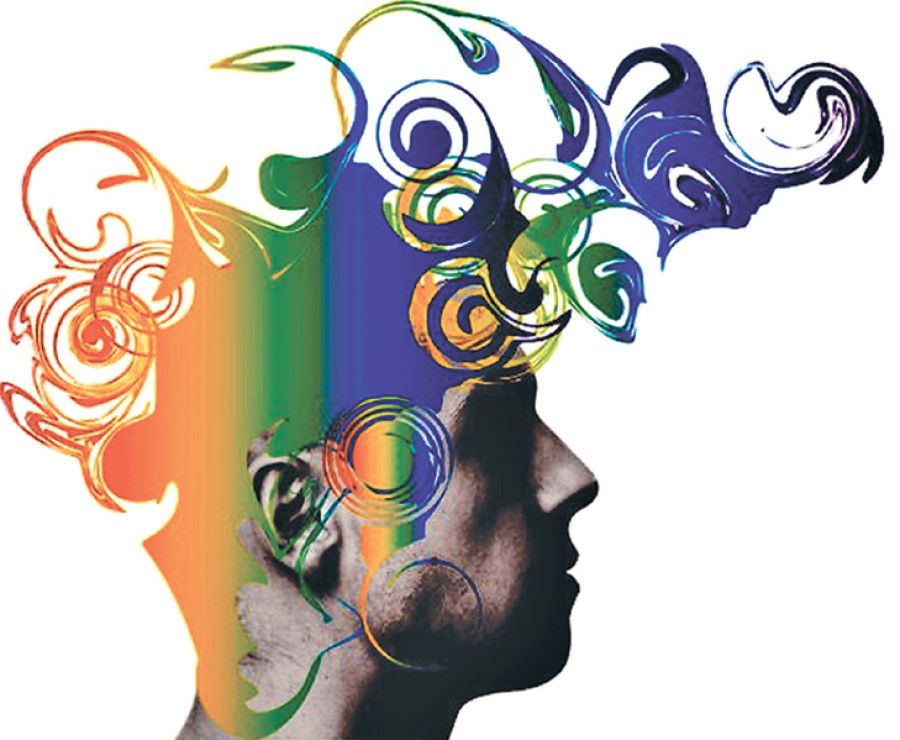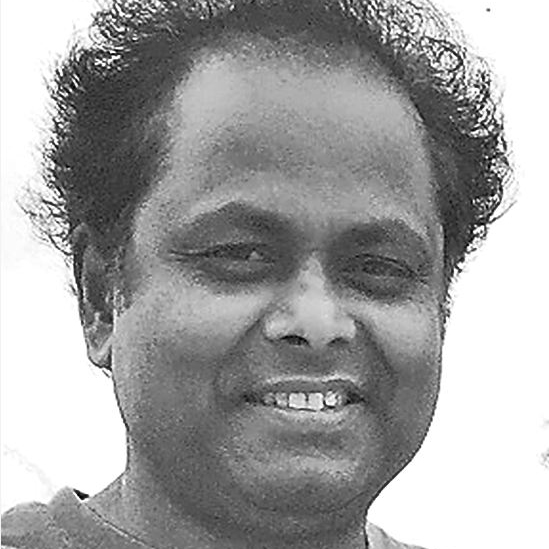Opinion
Broadening the Nepali mind
Events like the Nepal Literature Festival help counter aggressive nationalism and ignorance
Pramod Mishra
The sixth edition of the Nepal Literature Festival has just ended in the lake town of Pokhara, and it appears that, like many other emerging cultural and civic institutions in Nepal, it is also on its way to gaining the status of an institution in the new Nepal. Strengthening it and holding it with uncompromising regularity would be one example how Nepalis can build a strong, independent country with its own institutions to be proud of. At a time when shrill noises of exclusionary nationality and nationalism are being uttered in order to save the country and keep it independent, the civil, in-depth, critical exploration of burning issues bodes well for the education of the emerging generation of Nepalis both at home and abroad. So does the discussion of cultures, literature, political trends, social media and development by writers, intellectuals, and artists as happened in Pokhara—which was telecasted on Youtube worldwide.
Myth of national culture
Cheap sloganeering about nationalism, and knee-jerk reactions to anything about inclusion, multiculturalism, territorial federalism and indiscriminate opposition to India make any Ram Bahadur and Shyam Bahadur overnight celebrities even among people who are not affiliated with any political party. This impulsive nationalism has become quite dangerous in and for Nepal. It damages Nepal and Nepalis in many ways. It has alienated a large chunk of diverse people in Nepal who do not identify with the Khas-Arya cultural and political dominance, which has stood for ‘Nepali national culture’ and identity as long as Nepal has existed. While cheap sloganeering, treating India as a bogeyman and inclusionary federalism as the enemy continues, in social and mainstream media, dissenting voices of prominent Nepali-speaking intellectuals and media proponents have begun to appear in the public sphere. The intellectual tide is turning against ‘Oli nationalism’ in Nepal and it is a good thing. The recent ‘roasting’ of KP Oli by media man and memoirist Vijay Kumar at the former’s book launch, challenging Oli to define his nationalism in Vijay Kumar’s inimitable poison-laced voice of humor and flattery is a case in point. This is the most crucial time for Nepalis to be well-informed, well-educated and broad-minded and critically aware about their nationalism. At a time when their college and university curriculum has failed them in teaching critical thinking skills and broad-based knowledge for various reasons, as the former vice chancellor of TU Kedar Bhakta Mathema said in his keynote address at the festival, they should educate themselves by reading the writings of Krishna Khanal, Ameet Dhakal, Krishna Pokhrel, Lokraj Baral, Rajendra Maharjan, Ahuti, Dipendra Jha, CK Lal side by side with the bombastic, jingoistic, xenophobic writings of many UML politicians and others who find free space in many newspapers for their poison—and, of course, attend public events of serious debate and in-depth discussion as in the Nepal Literature Festival 2017.
I found the panels on populism, rebel views (baagi bichaar) and MaHa’s comedy quite useful in this regard. Ranjan Mukarung answered a questioner aptly as to why he writes in Nepali, for which he has even won the Madan Prize, the highest prize in literature in Nepal. He said that he writes in Nepali because this is the language in which he can communicate the issues of inclusion and exclusion of his Rai indigenous culture, language and people to the ruling class. His statement is equivalent to Salman Rushdie’s “the empire writes back” or the saying “dismantling the master’s house with the master’s tool” about challenging Eurocentrism and Western hegemony.
We should remember here that Mukarung says this despite being a prominent writer in the language. What is the source of his anger? Where does his rebellion come from? Is it from the hidden pain of his family when his grandfather, realising that without learning Nepali and acculturation to hill-caste Hindu culture, there would be no upward mobility for his family. Realising this, he uprooted his family from his Rai-ethnic village and resettled close to a hill Hindu caste village? Or, is it guilt that Mukarung has become a successful writer whereas his fellow indigenous Rai and other Janjaati folk in their villages even now can speak only a smattering of Nepali and have remained marginalised. If you examine the life and writings of Bhupi Sherchan, you will find a similar rage and sarcasm at what constitutes the national myth and glory in Nepal. It is the rage of the excluded.
Acknowledging India
Like other years, this year there were also a couple of guests from India, such as historian/intellectual Ramchandra Guha and Hindi writer Uday Prakash. While Prakash’s sessions ran in Hindi, English and Nepali, Kanak Dixit conducted his conversation with Guha in English. But Dixit’s comment about the young generation of Nepali becoming increasingly ignorant about India and asking Guha to explain a point in Indian history needs exploration here because of its complexity.
The first generation of writers, intellectuals, politicians of Nepal were all enriched and influenced by their knowledge of India. Many were educated there and they all had access to serious Hindi writing. The Panchayat system destroyed this link by its one-language jingoism. As a result, Nepali youth, especially the common folk, lost that access to the richness of literature and philosophy that was easily available to Nepalis in Hindi.
To be sure, the Nepali middle class knows Hindi but only its colloquial form from Hindi serials and Bollywood cinema. Access to serious culture (literature, history, philosophy) is lacking, because while the entertainment of Hindi serials and films is irresistible for their pleasure value, the anti-Indian culture jingoism taught by the Panchayat system has seeped through the generations and persists even now. As for the privileged that get educated through English medium schools, their case is nothing short of hopeless. They learn English at the expense of serious Nepali (even many overseas educated among them can barely write in their mother tongue but their English is of little use in government exams beyond achieving a pass mark). The average English educated person gets lost in the popular American culture of ‘rock ‘n’ roll’. Even for serious criticism of India beyond a knee-jerk response, you need to know India. And Hindi is the easiest way to do so if you are not highly competent in English and not sold your soul to pop English culture.
What would have happened to my intellectual make-up if I had not been exposed to Hindi poets. Hell, I read my Good Earth, first Tagore, Sharat Chandra and other Bengalis in Hindi because English and Bengali books were not available, even though I read Bengali because my Hindu pandit father sent me to learn Bengali, Arabic, Urdu and Persian to a maulvi in my Morang village.
So, I would say, if you don’t know India, you don’t know Nepal. Why? Because the founding father Prithvi envision his kingdom as “Asil Hindustan”.
Finally, I would say that the Nepal Literature Festival should broaden its scope. It should include other literatures of Nepal. I would have liked sessions on Nepal Bhasa and Maithili literatures, to begin with. They did have one on Kirat Mundhum but they could have sessions on the oral story telling cultures of other ethnic groups. For the most urgent need right now is not fall into the trap and legacy of Panchayat that many in Nepal are trying to perpetuate. As king Mahendra’s actions ultimately destroyed his dynasty, it is time to look ahead and undertake the painful task of broadening the Nepali mind one festival at a time in order to fortify Nepal’s multiplicity.




 19.67°C Kathmandu
19.67°C Kathmandu










